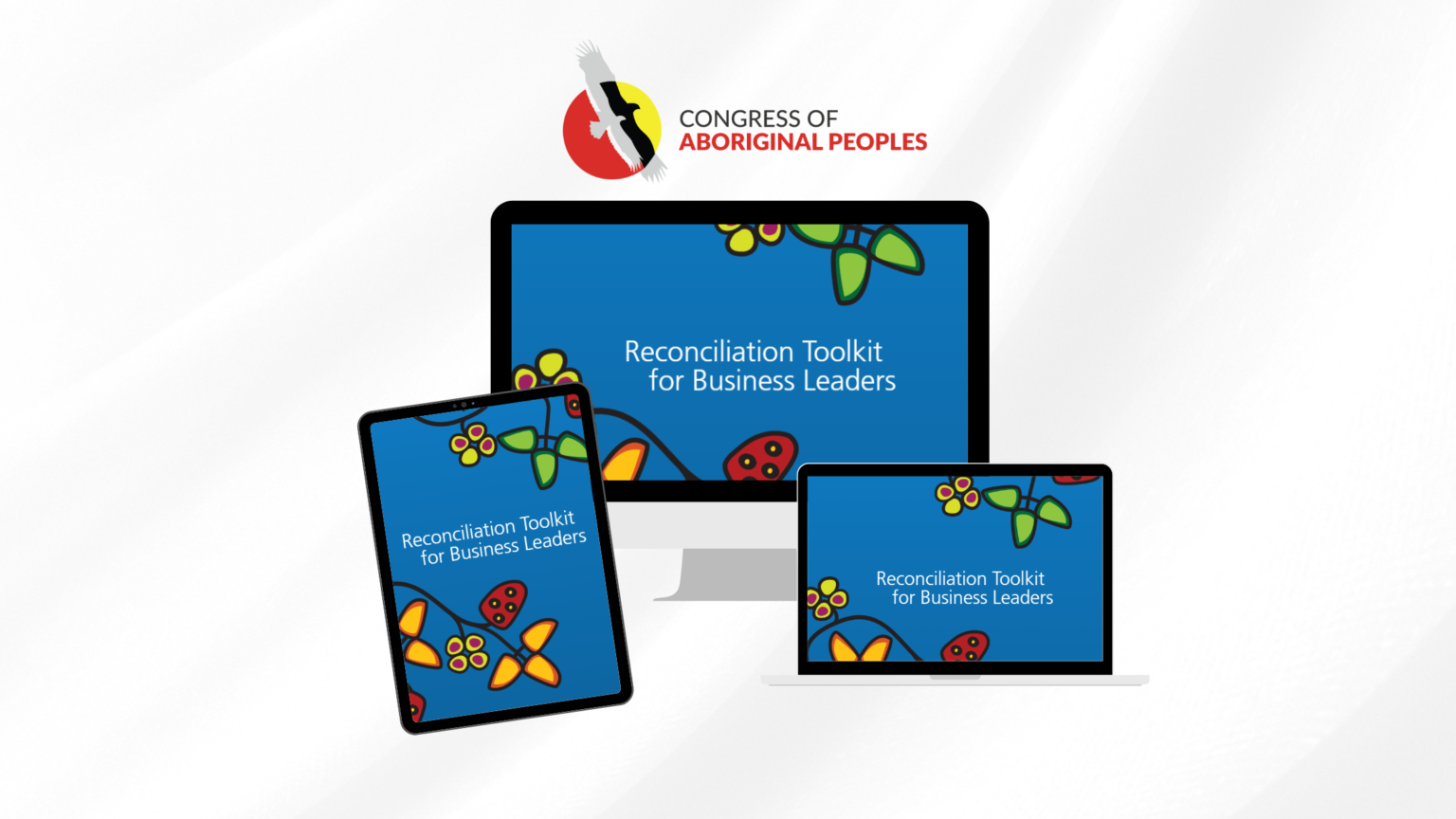
An updated reconciliation toolkit has been launched by the Congress of Aboriginal Peoples with support from McMaster University’s Faculty of Engineering and FedDEv Ontario. A resource for business leaders, the toolkit is focused on creating a pathway towards addressing both industry and Indigenous needs and advancing economic reconciliation and growth.
The Reconciliation Toolkit for Business Leaders is structured around four key areas: Reflection and learning, leading transformation, inclusive workplaces and outreach and engagement.
Using the toolkit’s resources, business leaders can access educational materials, templates, planning tips, resource directories and connections to organizations for additional support when it comes to respectfully and meaningfully engaging with Indigenous peoples, businesses and communities.
“This toolkit helps break down barriers that have long stood between business and our cultures,” says CAP National Chief Brendan Moore. “Indigenous youth are the fastest growing population in Canada, so it’s crucial that businesses prepare to work hand in hand with our people. The toolkit helps ensure respect and understanding are at the foundation of all business endeavours.”
The toolkit was supported by funding from FedDev Ontario under the Aerospace Regional Recovery Initiative (AARI) led by McMaster’s Faculty of Engineering. Florent Lefevre-Schlick, who led ARRI, worked closely with CAP to bring the toolkit to fruition.
“We have heard from several business leaders, associations, and through various McMaster collaborations about the need to understand and foster meaningful interactions with Indigenous communities, businesses and potential employees,” says Lefevre-Schlick.
“By supporting the Congress of Aboriginal Peoples in updating their Reconciliation Toolkit, we aim to inform industry and potential employers of its development that not only enhances its significance but also promotes meaningful dialogue and economic reconciliation. Ultimately, this initiative seeks to create pathways for collaboration, employment and sustainable growth, benefiting both Indigenous and non-Indigenous stakeholders alike.”
